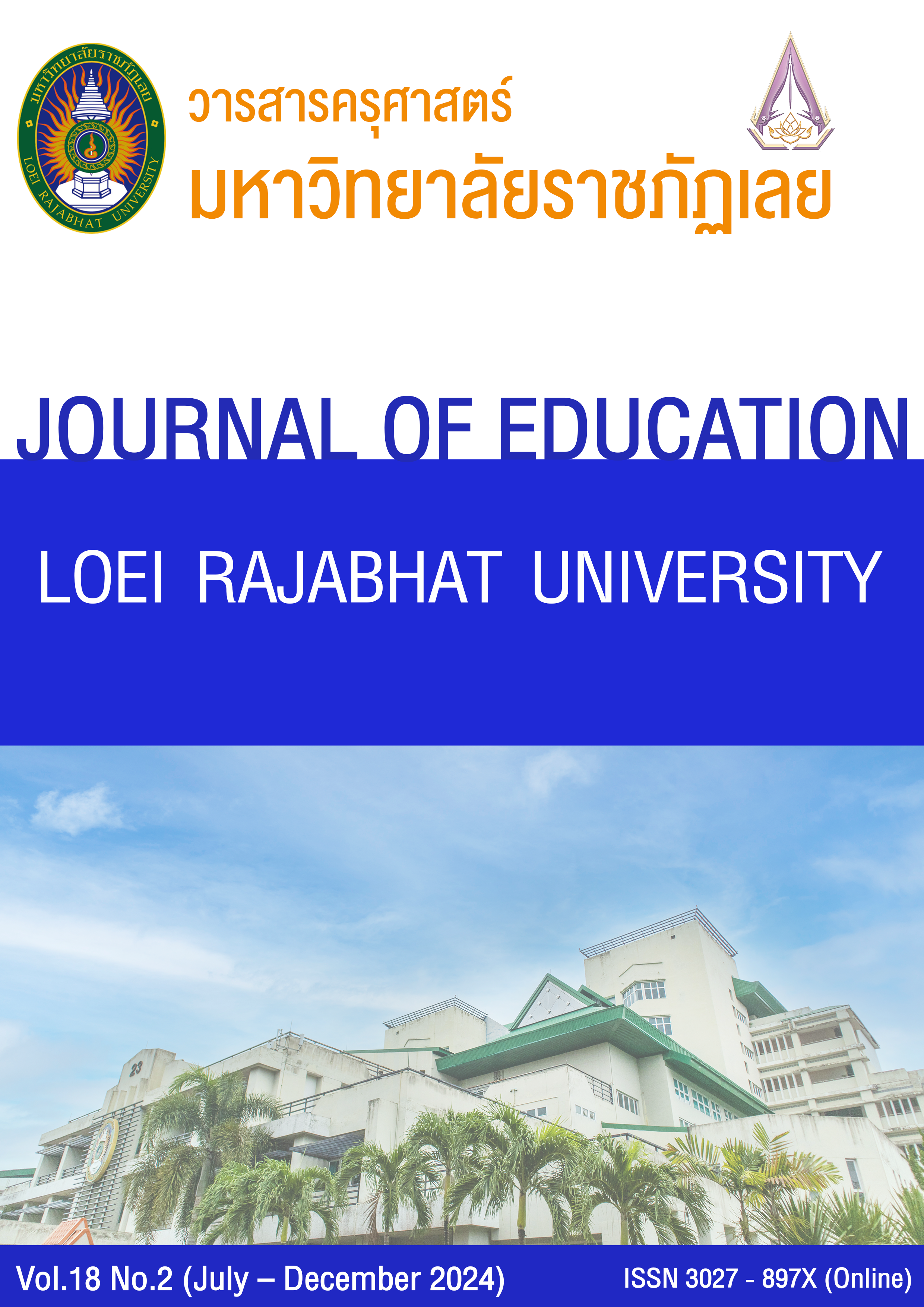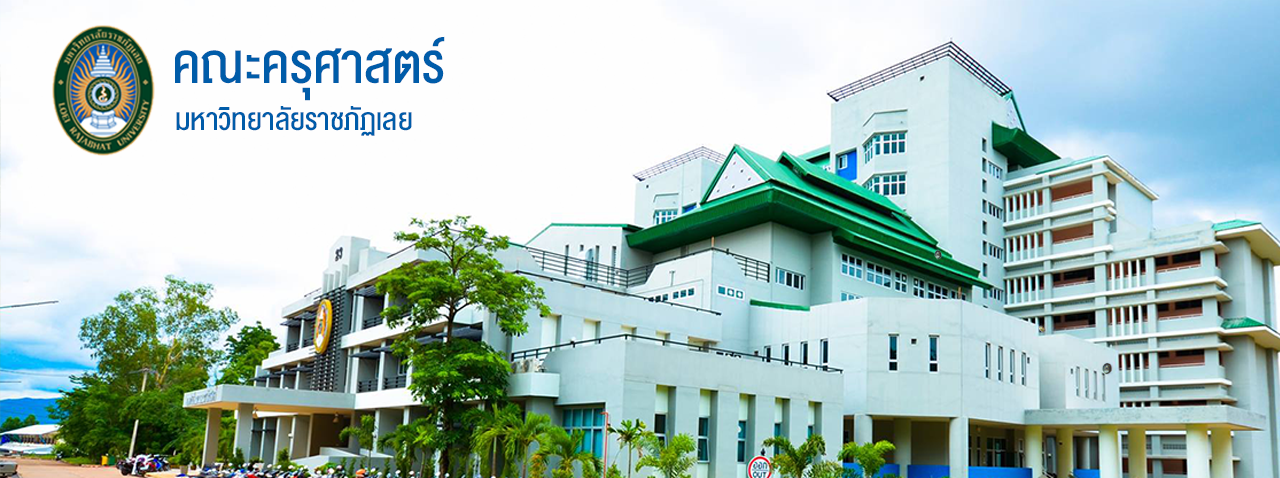The Effects of Active Training to Develop Knowledge in Educational Psychology and Counseling Skills for Teachers under the Phayao Provincial Office of Learning Encouragement
Keywords:
Active Training}, Develop Knowledge, Educational Psychology, Counseling SkillsAbstract
Developing knowledge in educational psychology and counseling skills is important for teachers under the Office of Learning Encouragement to be developed for effective use with learners thus, objectives of the study were 1) to compare the psychological knowledge of teachers under the Phayao Provincial Office of Learning Encouragement, 2) to compare the counselling skills of teachers under the Phayao Provincial Office of Learning Encouragement, and 3)to study the satisfaction of teachers under the Phayao Provincial Office of Learning Encouragement taking active training on the body of knowledge of psychology and counseling skills.The sample group consisted of forty teachers under the Phayao Provincial Office of Learning Encouragement with purposive selection based on criteria of selection focusing on teachers who applied for active training to develop psychological knowledge and counseling skills held by the researcher. Instruments employed for data collection were active training manuals, educational psychology fundamental test, counseling skill assessments, and satisfaction questionnaires..Statistics used in data analysis include percentage, mean, standard deviation, and Dependent Sample t-test. Findings showed that: 1) after training, teachers had statically significantly higher knowledge of psychology prior to training at the .05 level, 2) after training, their counseling skills were statically significantly higher at the .05 level, and
3) after training teachers were satisfied with the active learning training to the great extent.
References
กรมส่งเสริมการเรียนรู้. (2566). อำนาจหน้าที่ กรมส่งเสริมการเรียนรู้. สืบค้นเมื่อ 20 สิงหาคม 2566, จาก
http://www.nfe.go.th/onie2019/
ชุมพล สุวิเชียร. (2561). การพัฒนาชุดกิจกรรมการเรียนรู้แบบ Active Learning โดยใช้รูปแบบ SANO Model สำหรับ
นักเรียนชั้นมัธยมศึกษาปีที่ 2 โรงเรียนหนองโสนพิทยาคม. กลุ่มวิจัยและส่งเสริมการวิจัยทางการศึกษา สำนักพัฒนา
นวัตกรรมการจัดการศึกษาสำนักงานคณะกรรมการการศึกษาขั้นพื้นฐาน.
นนทลี พรธาดาวิทย์. (2559). การจัดการเรียนรู้แบบ Active Learning. ทริปเพิ้ล เอ็ดดูเคชั่น.
มาลินี เลิศไธสง. (2561). การพัฒนาหลักสูตรฝึกอบรมการสอนภาษาอังกฤษโดยใช้ Active Learning สำหรับครูผู้สอนช่วง
ชั้นที่ 2 ในจังหวัดนครราชสีมา. วารสารวิชาการ มหาวิทยาลัยราชภัฏพระนคร, 9(2), 242-255.
https://so01.tcithaijo.org/index.php/AJPU/article/view/133596/116981
สถาพร พฤฑฒิกุล. (2558). เอกสารประกอบการฝึกอบรม "คุณภาพผู้เรียน เกิดจากกระบวนการเรียนรู้" คณะเทคโนโลยี
การเกษตร มหาวิทยาลัยบูรพาวิทยาเขตสระแก้วออนไลน์. สืบค้นเมื่อ 21 กันยายน 2566, จาก
http://km.buu.ac.th/article/frontend/article detail/141
สำนักงานคณะกรรมการการศึกษาขั้นพื้นฐาน. (2560). คู่มือการประเมินกุณภาพตามมาตรฐานการศึกษาขั้นพื้นฐานเพื่อ
การประกันคุณภาพภายในของสถานศึกษา. โรงพิมพ์สำนักงานพระพุทธศาสนาแห่งชาติ.
สำนักงานคณะกรรมการพัฒนาการเศรษฐกิจและสังคมแห่งชาติ. (2560). ยุทธศาสตร์ชาติ 20 ปี (พ.ศ. 2561-2580).
สำนักงานคณะกรรมการพัฒนาการเศรษฐกิจและสังคมแห่งชาติ.
สำนักงานเลขาธิการสภาการศึกษา กระทรวงศึกษาธิการ. (2560). แผนการศึกษาแห่งชาติ พ.ศ.2560-2579.
(พิมพ์ครั้งที่ 1). พริกหวานกราฟฟิค.
Bonwell, C. C., & Eison, J. A. (1991). Active Learning: Creative Excitement in the Classroom.
Washington, D.C.: School of Education and Human Development, George Washington University.
Edgar Dale. (1969). Audiovisual method in teaching. the Dryden Press.
Felder, R. & Brent, R. (1996). Navigating the Bumpy Road to Student-Centered Instruction.
Journal of College Teaching, 44(2), 43-47. DOI:10.1080/87567555.1996.9933425.
Silberman, M. (2005). 101 Ways to Make Training Active. (2nd edition). Hoboken: Pfeiffer.
Downloads
Published
How to Cite
Issue
Section
License
Copyright (c) 2024 Journal of Education, Loei Rajabhat University

This work is licensed under a Creative Commons Attribution-NonCommercial-NoDerivatives 4.0 International License.
เนื้อหาและข้อมูลในบทความที่ตีพิมพ์ในวารสารครุศาสตร์ มหาวิทยาลัยราชภัฏเลย ถือเป็นความคิดเห็นและความรับผิดชอบของผู้เขียนบทความโดยตรง กองบรรณาธิการวารสารไม่มีส่วนในความคิดเห็นและความรับผิดชอบใดที่เกี่ยวข้องกับบทความดังกล่าว ทั้งนี้ บทความที่ได้รับการตีพิมพ์ในวารสาร ฯ ถือเป็นลิขสิทธิ์ของวารสาร








